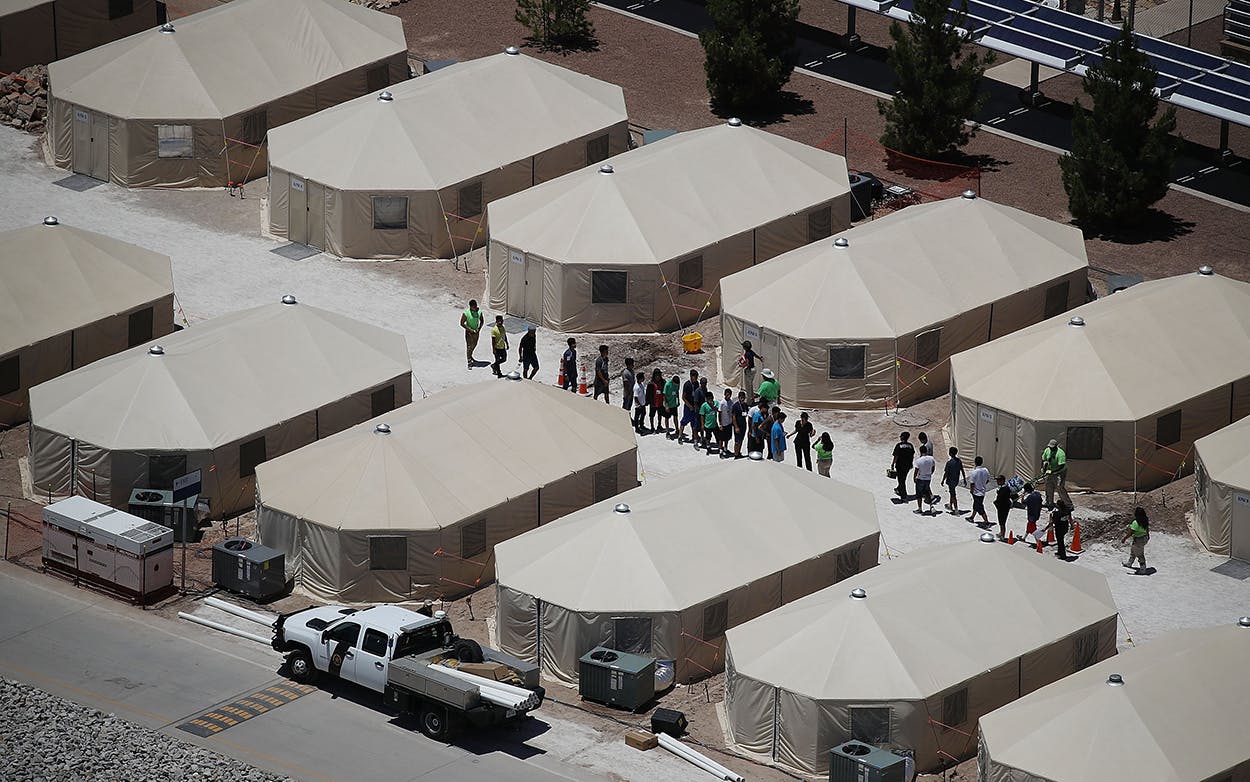The last of 6,200 migrant children held at the Tornillo tent facility since June left on Friday morning, bringing an end to one of 2018’s biggest border controversies. Yet a top Health and Human Services official warns that such efforts will continue to be needed when the number of unaccompanied migrant children spikes at the border. “Though Tornillo is on a path toward closure, influx facilities like Tornillo are necessary for HHS to care for [unaccompanied alien children] referred to us by the Department of Homeland Security,” said Lynn Johnson, the Health and Human Services assistant secretary who oversees the program. “As the Trump administration continues to enforce current laws to address our nation’s crisis at the border, the program will need to continue to evaluate needs and capacity in order to care for the hundreds of UAC that cross the US border daily. The program is designed to expand and contract to meet these needs and facilities, like Tornillo, have been critical during periods of influx as was done in 2012, 2014, and 2016.”
News of the departure of the last child at Tornillo came on Twitter from Representative Will Hurd, R-Helotes, whose sprawling district includes the town of Tornillo in El Paso County.
BREAKING: I just talked with the management at the Tornillo facility – the last kid just left. This tent city should never have stood in the first place but it is welcome news that it will be gone.
— Will Hurd (@WillHurd) January 11, 2019
According to a statement from HHS, the last children at Tornillo “have been either released to an appropriate sponsor or transferred to other shelters throughout our network of care providers. Operations at Tornillo will be ongoing to appropriately and adequately continue the path towards closure.” Although the department has not set a date for final closure, Texas Monthly has reported that the site will be cleared by the end of the month.
Most of the children held at Tornillo, who largely traveled to the border without parents or guardians, are now with family members in the United States who have agreed to sponsor them while their asylum applications are reviewed by immigration judges. A small number—about 300 or so, sources told Texas Monthly—still don’t have an approved sponsor and will be moved to another shelter while the process of finding and approving a sponsor continues.
Unaccompanied migrant children generally are housed in a network of more than 100 permanent dormitory-style shelters across the country, including 35 in Texas, but the government opens temporary “influx” facilities like Tornillo when the number of children in government custody grows beyond the capacity of the approximately 11,000 beds in that network.
A key House Democrat welcomed the news that no more children are being held at Tornillo, but vowed to hold the Trump administration accountable for its actions at the facility and more broadly with the program for unaccompanied migrant children, which largely escaped congressional scrutiny while Republicans controlled the House and Senate. “While I welcome the closing of the Tornillo tent city facility—action I pushed for late last year with Congresswoman [Lucille] Roybal-Allard—critical questions remain regarding the unaccompanied children program. Too many children are languishing in the Department of Health and Human Service’s custody, as HHS continues being used as an immigration enforcement tool,” said Representative Rosa DeLauro, D-Connecticut, who is expected to become chairwoman of the House Appropriations subcommittee that oversees HHS funding. Representative Hurd also vows to push the administration for more information on why the population of migrant children in government custody exploded in 2018.
The government’s Office of Refugee Resettlement had custody of 15,000 migrant children—including 2,800 held in tents in Tornillo—as recently as mid-December, the highest number on record. The Trump administration then backed off a controversial policy it had implemented in June that required any potential sponsor for unaccompanied migrant children to provide fingerprints for all adults in their household, which were shared with Immigration and Customs Enforcement. Sharing such information with ICE was an unprecedented step for ORR, which historically has been a child welfare agency charged with placing unaccompanied migrant children with family members in the United States. After the administration ended the fingerprinting policy, the number of children at Tornillo declined rapidly.
ORR had custody of 11,400 migrant children as of Monday, down from 15,000 three weeks earlier, but still historically high.
- More About:
- Donald Trump






